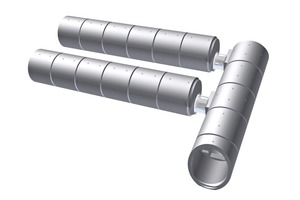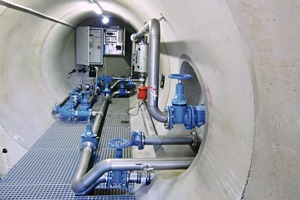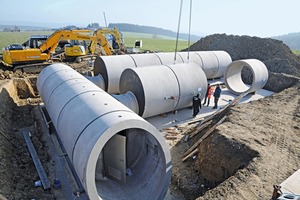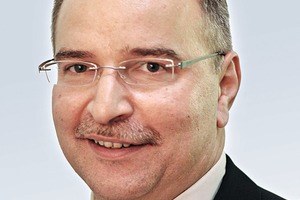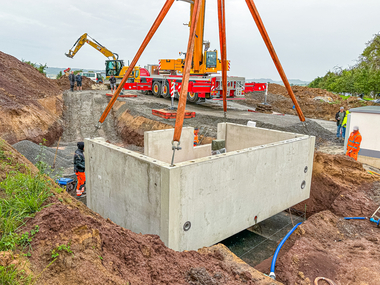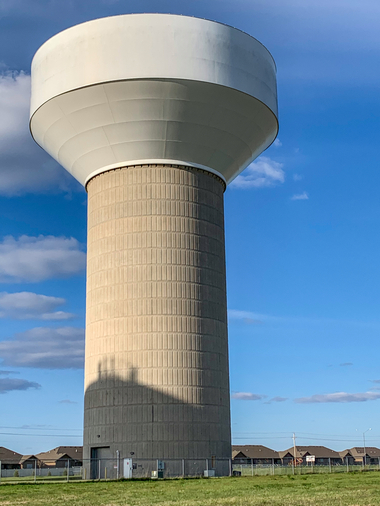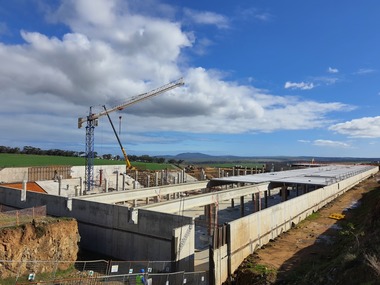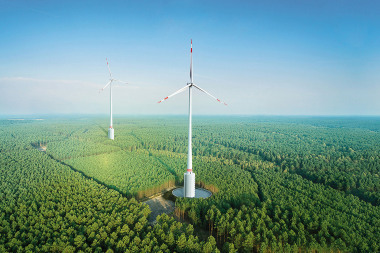Reinforced-concrete drinking water reservoirs –
Concrete has long been used for drinking water applications: the wealth of experience gained in the last few decades shows that the alkaline environment created by the concrete or reinforced concrete surface provides no substrate for microorganisms to live on. From a hygienic point of view, concrete is thus perfectly suitable for uses related to drinking water.
What is new, however, is the reservoir design: elevated concrete tanks were previously cast in place, which was a time-consuming, strongly weather-dependent construction method.
The Haba-Beton system opened up the opportunity to replace...

